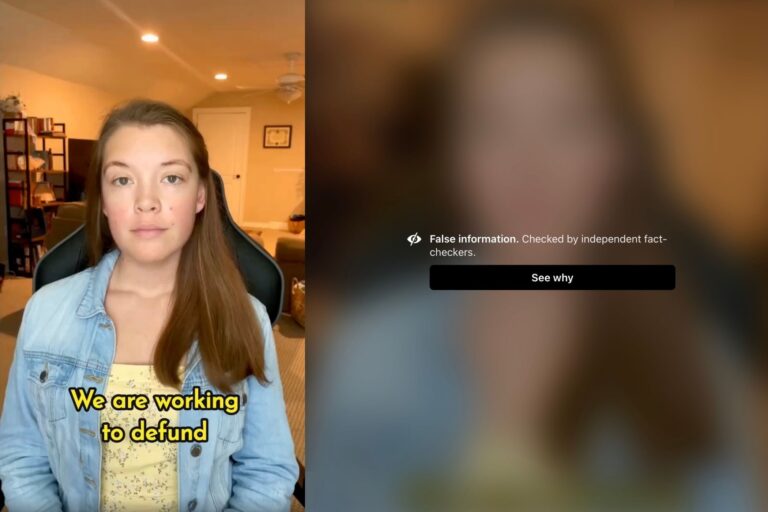Haiti, the nation which occupies the western third of the island of Hispaniola, is the poorest country in the western hemisphere. Its poverty is magnified by the HIV/AIDS epidemic ripping through the population. Over six percent of Haiti’s population, or about 500,000 people, are living with HIV. In the cities, the percentage is closer to 10 percent. Nearly 200,000 children have lost both parents to AIDS, and over 12,000 children are themselves infected.1
Desperate Situation
This is a truly desperate situation that cries out for a response. Both USAID’s Bureau of Global Health and the United Nations Global Fund (GF) have promoted “flagship” programs in Haiti. But how effective have USAID-Global Fund HIV/AIDS programs in Haiti been? Are they primarily interested in helping the Haitian people, or merely in attracting more funding for their own HIV/AIDS projects abroad? The Global HIV/AIDS initiative proposed by President Bush, with its $15 billion in mostly new funding, has organizations scrambling for a piece of the pie.
During a recent trip to Haiti, PRI investigators uncovered several areas of concern. One obvious shortcoming of USAID’s HIV/AIDS activities in Haiti (USAID is the largest donor to HIV/AIDS programs in Haiti to date) is that it is “integrated” into population programs designed to lower fertility rates.2 For fiscal year 2001, $4 million was allocated for HIV/AIDS programs “integrated” into sexual and reproductive health programs (SRH). USAID’s Health Systems 2004 Project (HS 2004) includes HIV/AIDS Counseling and Testing services through the Haitian Study Group on Kaposi’s Sarcoma and Opportunistic Infections (GHESKIO) HIV/AIDS program.3 GHESKIO works in support of the Ministry of Public Health and Population in Haiti.
Poor Medical Treatment
USAID’s HIVISRH integrated program involves HIV/AIDS treatment in sub-standard clinics in which invasive methods of family planning are administered. When you bring infected and uninfected women into the same clinic, and subject them both to invasive medical procedures, you run the risk of transmitting HIV/AIDS.
The ramshackle reproductive health clinics, little more than a concrete cell block, are not impressive. The nurses and doctors interviewed had an ample supply of condoms, contraceptive pills, Depo-Provera, and Norplant. Natural Family Planning and abstinence were conspicuous by their absence. Sterilizations by tubal ligation are performed in “surgical” facilities scarcely worthy of the name.
The hospitals and clinics that PRI visited were in desperate condition. Despite the fact that USAID has applied for funding for programs on the central plateau, the head physician at one hospital stated that he has received no funding — not one penny — in over a year.
Not surprisingly, the hospital stands almost empty. No one goes there because it lacks even most basic supplies. Hospital personnel receive no salaries. Those who do work in the hospital charge patients for each and every service, pocketing any money they collect. The hospital dispensary was actually given over to a religious group to administer. No one else could be trusted.
Abortion Still Illegal
While abortion is not legal in Haiti, it is not uncommon. Roughly seven percent of all pregnancies in Haiti end in abortion. USAID’s HS2OO4 integrated HIV/SRH program includes “post-abortion care” (PAC) with manual vacuum aspiration (MVA), as a “reproductive health” component of the integrated program, through USAID-funded non-governmental organization, Pathfinder.4
Manual vacuum aspirator abortions are routinely performed in nations where it is illegal, under the guise of post-abortion care. USAID has also promoted MVA PAC in conjunction with HIV treatment including prevention of mother-to-child HIV/AIDS transmission.5
In Haiti, PRI discovered that USAID-funded JHPIEGO (Johns Hopkins) promotes MVA PAC in 10 reference hospitals in Haiti, including on Haiti’s central plateau.6 In addition, USAID-funded Family Health International (FHI) has trained 300 nurse auxiliaries (midwives) to work in rural Haiti, to implement programs that include “post-abortion care.”7
Witchdoctor Medicine
Two different sources, a doctor and a GHESKIO official, confirmed that MVAs are used in the field by witchdoctors (native medical practitioners, some would call them), to perform abortions. Women often come to the hospital for post-abortion care following a botched MVA abortion. It is widely rumored that certain government doctors refer women to their private clinics for abortions.
In the past, USAID has actually funded voodoo family planning programs. Witchdoctors were trained (and paid) to give pro-population control “sermons” during their voodoo rituals.
PRI also discovered that USAID and the U.N. Global Fund are both claiming credit for the same projects in Haiti, namely, Haiti’s GHESKIO program. Both USAID and the Global Fund boast of funding “flagship programs” on the central plateau of Haiti, without admitting that there is actually only one project, with several funders. Both organizations are using this project as justification for a massive fundraising effort in Washington for similar programs throughout the developing world.
Yet on the ground in Haiti none of this largesse is in evidence. Patients are turned away because the hospital has no food to feed them, no antibiotics to give them. Is this a result of government corruption, bureaucratic inefficiency, or both? PRI cannot say.
But, in the face of the Western hemisphere’s worst AIDS epidemic, the words of one hospital administrator are haunting: “We don’t have any money,” he told PRI. “The money never arrived.”
Endnotes
1 USAID, “HIV/AIDS in Haiti and the USAID Involvement,” March 2002.
2 USAID, Activity Data Sheet, Haiti, “Healthier Families of Desired Size, 199-2004;” USAID, Global Health Haiti; http://www.usaid.gov/pop_health/aids/Countries/lac/Haiti.html
3 USAID, Global Health, Haiti, “USAID Support”.
4 Pathfinder, “Haiti” 2003.
5 Post-abortion Care Consortium, July 2002, USAID, Ipas, JHPIEGO, Pathfinder.
6 JHPIEGO, TRH Direct, January 31, 2002; July 31, 2002.
7 FHI, “Selected Family Planning Projects, “Reproductive Health Training in Haiti,” 2002.










